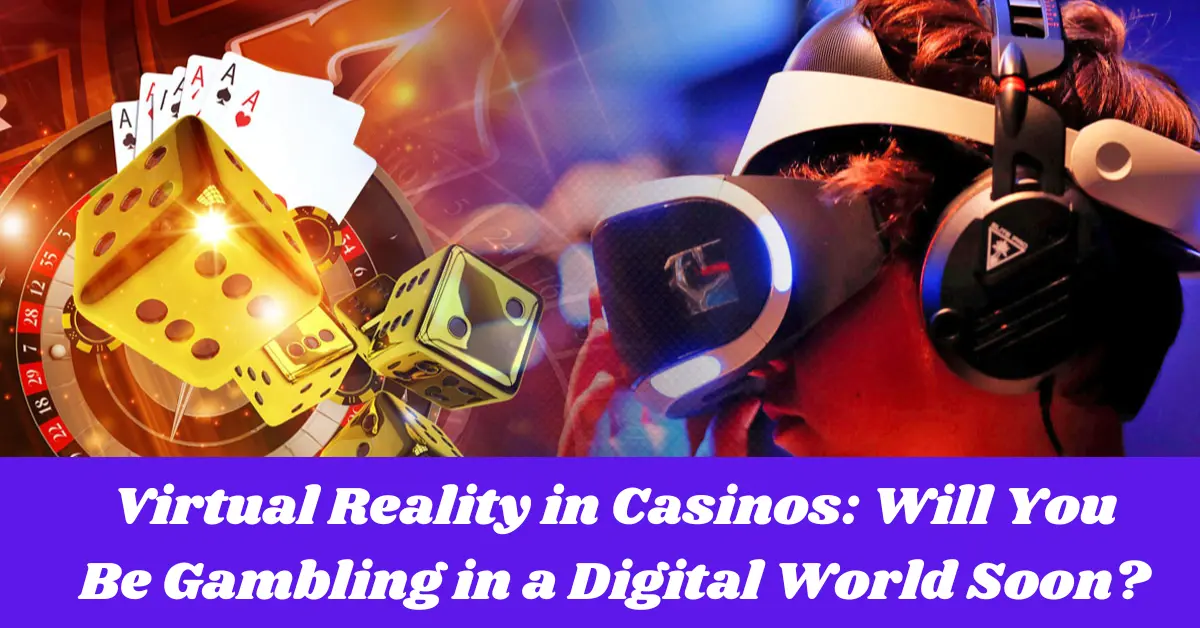
Virtual Reality in Casinos: Will You Be Gambling in a Digital World Soon?
The integration of virtual reality (VR) in casinos is rapidly advancing, with the global VR gaming market projected to reach $45 billion by 2025. This growth reflects a broader trend in the gaming and entertainment sectors, capturing the interest of tech-savvy millennials. VR enhances player immersion, fostering emotional investment and longer engagement times while facilitating social interaction. However, challenges like regulatory hurdles, technological limitations, and concerns over data privacy present barriers to widespread adoption. As casinos adapt to these dynamics, the evolution of online gambling is likely to usher in a new era of digital gaming experiences. Further insights await exploration.
Current Trends in Virtual Reality
The integration of virtual reality (VR) technology within the online casino Singapore has seen a notable surge, reflecting broader trends in both gaming and entertainment sectors. Recent data indicates that the global VR gaming market is projected to reach $45 billion by 2025, indicating a robust appetite for immersive experiences.
Casinos are increasingly adopting VR technology to enhance the gaming experience, allowing players to engage in lifelike environments without the physical constraints of traditional gaming venues. This shift not only attracts tech-savvy millennials but also caters to a growing demographic seeking unique, interactive forms of entertainment.
Benefits of VR in Casinos
Numerous benefits arise from the implementation of virtual reality (VR) in casinos, fundamentally enhancing the overall gaming experience. Enhanced immersion is a primary advantage, as VR technology creates a lifelike environment that transports players into a digital world, making them feel as though they are physically present in the casino. This heightened sense of reality can lead to increased engagement, as players become more emotionally invested in their gaming activities.
Statistics indicate that VR users often spend longer periods in virtual environments, resulting in greater player retention and satisfaction. Moreover, VR can facilitate social interactions among players in innovative ways, fostering a sense of community and shared experience. Ultimately, the integration of VR technology promises to revolutionize the casino landscape.
Challenges Facing VR Adoption
Adoption of virtual reality (VR) technology in casinos is fraught with significant challenges that can hinder its widespread implementation. One major barrier is the regulatory hurdles, as jurisdictions vary in their approach to online and immersive gambling experiences. Adapting existing legislation to encompass VR may take considerable time and effort, potentially stifling innovation.
Additionally, technological limitations pose a significant challenge; VR systems often require substantial hardware investments and can be restrictive regarding accessibility for users. The need for high-speed internet and advanced devices may alienate potential players who lack the necessary resources.
Together, these factors create a complex landscape that casinos must navigate to successfully integrate VR into their gaming offerings while ensuring compliance and accessibility for all users.
Future of Online Gambling
Online gambling is poised for a transformative evolution as emerging technologies and shifting consumer preferences reshape the industry landscape. Regulation changes are pivotal, as governments adapt to the rapid pace of innovation, balancing player protection with the desire for freedom in gaming choices.
Technology advancements, such as blockchain and artificial intelligence, are expected to enhance security, transparency, and user experience, fostering trust among players. Additionally, the integration of virtual reality will create immersive environments, allowing players to engage in unprecedented ways.
As these forces converge, online gambling will not only expand its reach but also redefine the core gaming experience, making it essential for stakeholders to remain agile and responsive to the evolving regulatory and technological frameworks that will shape the future.
Consumer Perspectives on VR Gaming
As the landscape of gaming evolves, consumer perspectives on virtual reality (VR) gaming are becoming increasingly significant in shaping its development and adoption. Players are drawn to the immersive experiences VR offers, but their feedback reveals pivotal insights into user experience and ethical concerns.
Key consumer sentiments include:
- A desire for realistic interactions that mimic physical casinos
- Concerns about addiction and its heightened risks in virtual environments
- Demand for greater transparency in game mechanics
- Interest in social connectivity with other players
- Worries about data privacy and security
Understanding these perspectives is essential for developers and regulators alike, as they navigate the complex intersection of innovation and responsibility in the burgeoning VR gaming market.
Conclusion
The integration of virtual reality in casinos presents both important opportunities and challenging challenges. Current trends indicate a growing acceptance of VR technology among consumers, driven by its potential to enhance the immersive gaming experience. However, obstacles such as high development costs and technological limitations must be addressed for widespread adoption. As the online gambling landscape evolves, understanding consumer perspectives will be essential to shaping the future of VR gaming, ultimately determining its success in the digital domain.

